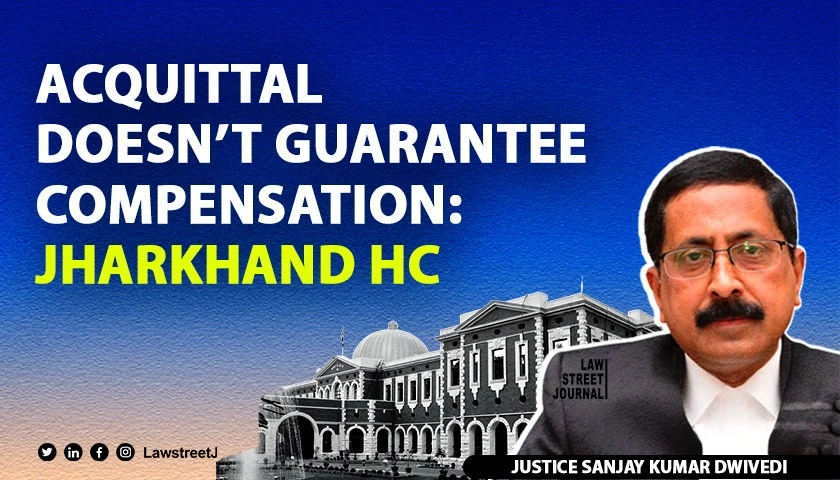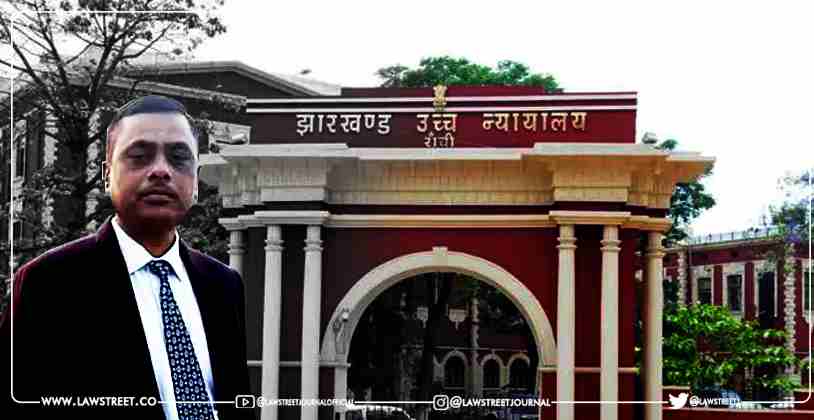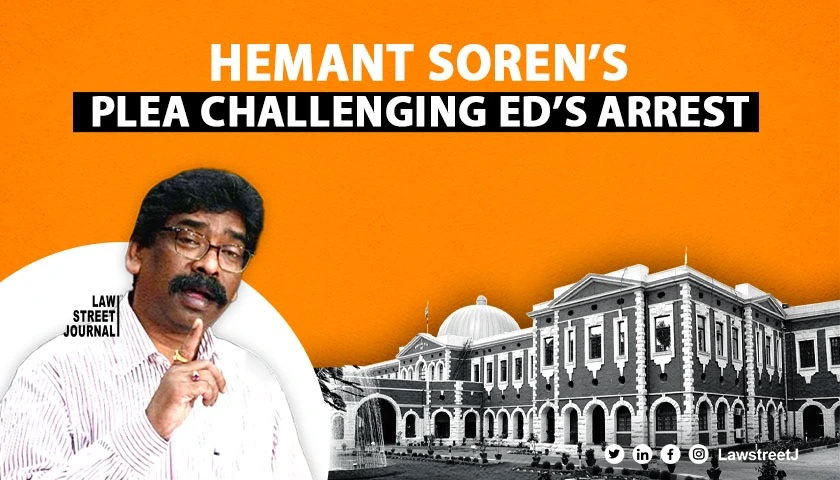Jharkhand: The Jharkhand High Court has delivered a significant judgment, dismissing a petition seeking compensation for an individual acquitted in a criminal case after a previous conviction. The court held that an acquittal alone does not automatically entitle an accused to compensation.
Justice Sanjay Kumar Dwivedi, while disposing of the writ petition, emphasized that major human rights treaties do not provide an explicit right to compensation for acquitted individuals.
The case involved Banshi Dhar Shukla, who was initially convicted in a CBI case relating to the forgery of bail orders. He was found guilty by a trial court in 2004, and by an appellate court in 2006, but was ultimately acquitted by a revisional court in April 2023.
Addressing the petitioner’s claim for compensation based on his acquittal, the court observed:
“The major human rights treaties do not provide an explicit right to compensation for an acquitted accused. An acquitted individual in a criminal case cannot claim compensation as a human rights remedy, because detention before or during a trial does not violate their human rights.”
The court further noted:
“An accused in a criminal case is entitled to acquittal if the prosecution’s evidence is too weak to support a conviction. More importantly, there is no indication that states are under a legal obligation to compensate an acquitted accused. The Court has no discretion in this matter.”
Justice Dwivedi emphasized that conviction followed by acquittal cannot automatically be grounds for compensation:
“It is well known that if any person is convicted and subsequently acquitted, that alone cannot be grounds for compensation. If a case for compensation is made out, the court delivering the judgment can pass such an order at the time of judgment.”
The court concluded that no case for interference was made out and dismissed the petition.




![Supreme Court Collegium approves new Chief Justices for five key High Courts in India [Read Recommendations]](/secure/uploads/2023/12/lj_8000_380d1135-6f3a-4988-a00a-4d5cd5901815.jpg)
!['Arbitrary, impermissible,' SC quashes HC's resolution raising aggregate cut off marks on district judges appointment [Read Judgment]](/secure/uploads/2024/02/lj_3605_Rule-for-Judge-Selection.webp)





